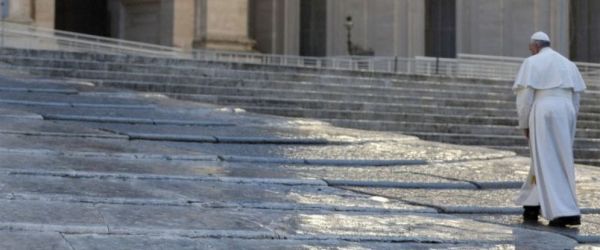Here is the Jonah syndrome, which "affects those who are not zealous for the conversion of people, who seek a holiness — if I may use the word — a holiness of the dry cleaners, that is, all beautiful, all well done, but without the zeal that leads us to preach the Lord." The Pope recalled that the Lord "before this generation, sick with the Jonah syndrome, promises the sign of Jonah." He added: 'In the other version, that of Matthew, it says: but Jonah was in the whale three nights and three days... The reference is to Jesus in the tomb, to his death and resurrection. And this is the sign that Jesus promises: against hypocrisy, against this attitude of perfect religiosity, against this attitude of a group of Pharisees'.
To clarify the concept, the Bishop of Rome referred to another parable from the Gospel "that well represents what Jesus wants to say. It is the parable of the Pharisee and the tax collector praying in the temple (Luke 14:10-14). The Pharisee is so sure of himself before the altar that he says: 'I thank you, God, that I am not like all these people of Nineveh, nor even like that man over there! And the man over there was the tax collector, who said only: 'Lord, have mercy on me, a sinner'.
The sign that Jesus promises, Pope Francis explained, is his forgiveness through his death and resurrection. The sign that Jesus promises is his mercy, which God had been asking for a long time: 'I desire mercy, not sacrifice'. Therefore, 'the true sign of Jonah is that which gives us the confidence that we will be saved by the blood of Christ. There are many Christians who think they are saved only because of what they do, because of their works. Works are necessary, but they are a consequence, a response to that merciful love that saves us." Works alone, without this merciful love, are not enough.
Therefore, "the Jonah syndrome affects those who trust only in their personal righteousness, in their works." And when Jesus says "this evil generation," he is referring to "all those who have the Jonah syndrome within themselves." But there is more: "The Jonah syndrome," said the Pope, "leads us to hypocrisy, to that self-sufficiency that we believe we achieve because we are clean, perfect Christians, because we do these works, we observe the commandments, everything. A great disease, the Jonah syndrome!" Whereas "the sign of Jonah" is "the mercy of God in Jesus Christ, who died and rose for us, for our salvation."
"There are two words in the first reading," he added, "that connect with this. Paul says of himself that he is an apostle, not because he studied, but because he was called. And he says to Christians: you are called by Jesus Christ. The sign of Jonah calls us." Today's liturgy, the Pope concluded, helps us to understand and make a choice: "Do we want to follow the syndrome of Jonah or the sign of Jonah?"
[Pope Francis, St. Martha's, in L'Osservatore Romano, 15 October 2013]
Jul 13, 2025
Written by
don Giuseppe Nespeca
Jonah: Sign or syndrome?

don Giuseppe Nespeca
Giuseppe Nespeca è architetto e sacerdote. Cultore della Sacra scrittura è autore della raccolta "Due Fuochi due Vie - Religione e Fede, Vangeli e Tao"; coautore del libro "Dialogo e Solstizio".
Email This email address is being protected from spambots. You need JavaScript enabled to view it.
